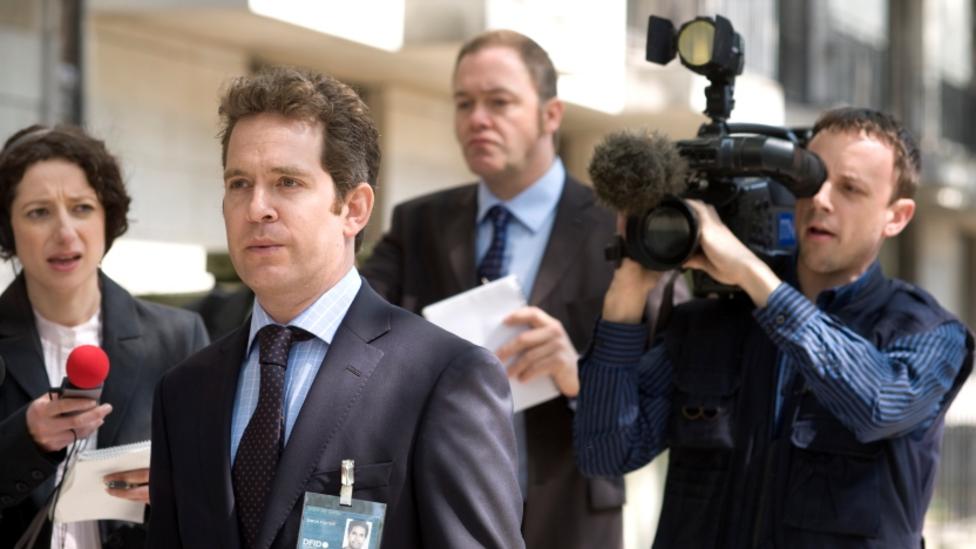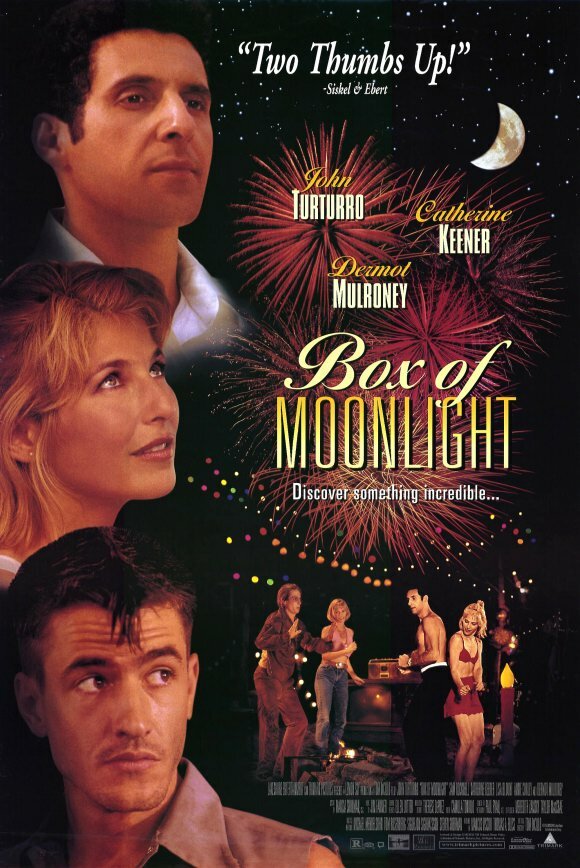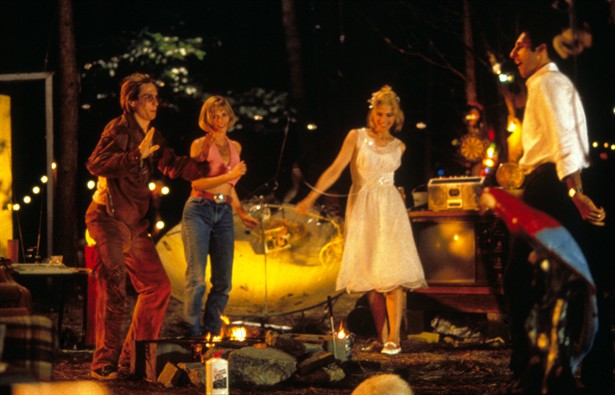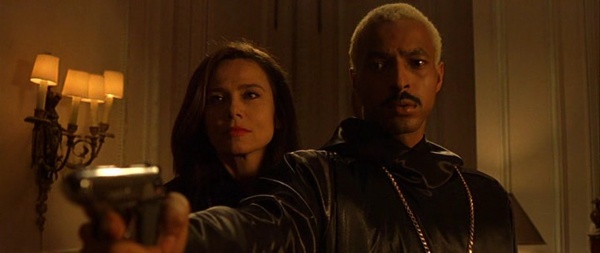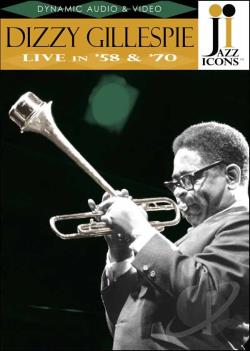Another find on the local library shelves to which I was
also looking forward with great anticipation.
I’d heard of the Smothers Brothers for years, but had never seen their
famous TV show. I knew that my wife (who
is a bit older than me) would remember it from her childhood. However, I was not even born when the show
originally aired, and it’s not something that you can easily find on cable,
much less regular broadcast. This
particular DVD set is not a complete collection of the entire third season, but
rather a selection of episodes chosen specifically by the brothers
themselves. I was excited to take a trip
back in time to a place I had never been, but unfortunately for me, this
journey, while being interesting historically, musically and politically, did
not provide much entertainment value.
In this case, I felt that I was unable to appreciate the
value of what the show managed to accomplish because the sixties were not my
generation. I wasn’t there to see the fervent
deconstruction of political, social and sexual conventions. My mind was not suddenly expanded by the new
attitudes and topics in music, politics, social mores and the burgeoning drug scene. I wasn’t there to feel the winds
of change ruffling my long hair or to smell the familiar sweet smoke wafting through the air during an outdoor concert in the park. I was not galvanized by the propulsive desire
to end the war and try to bring peace to the world. It must have been an amazing time!
However, a significant portion of the populace was not
ready for such radical ideas and changes.
They did not look kindly upon the criticisms and mockery directed so
vehemently at their old-fashioned way of life.
In particular, those who walked the corridors of power in politics and
other institutions did their level best to deter, dissuade and destroy the
growing movement of young people dedicated to transforming American
society. Control and censorship were
exercised with heavy hands whenever and wherever possible, and the Smother
Brothers Comedy Hour was not an exception.
Even though Tom and Dick were very sympathetic to the changin’ times,
they were not allowed by CBS to speak their minds fully, even on a television show
which carried their name. Aside from a few sparks of
rebellion, the cold hand of conservative power cast a chill over the proceedings.
We watched three episodes before my interest bottomed
out. While I could appreciate the
historical importance of watching Tom and Dick use every trick that they could
to slip things by the censors, the sense of omnipotent oppression lurking just
off-screen taints even the good-natured and silly
sketches. You can feel the Brothers trying their best to be funny, irreverent and topical, yet you know that they
are not being allowed to bring their particular perspectives, attitudes and
opinions to the forefront. The culture
clash between old and new was still so fresh, so raw and at times so painful
that it ceases to be interesting or entertaining and instead makes you feel as
if you’ve suddenly stumbled into the middle of a heated political debate at
what you thought was supposed to be a fun and relaxing family gathering. It just feels so awkward.

There
were a few moments, such as the performances by The Doors, where the safe
atmosphere was expunged so powerfully and with such bravado that I was immediately captivated by the mind-reeling mix of freedom, chaos and orgasm.
Jim Morrison’s persona, even in so staid an environment, radiates potent
sexual power and confidence. He dares you to look into his eyes and
maintain contact. The psychological
challenge that Morrison directs at the audience with his thousand-yard stare
burns through the camera lens like the heat of the sun on a sweltering summer
day. It is palpable, seductive and
totally alluring. The Doors performed
“Touch Me” and “Wild Child”, two songs which are both heavily laced with the
surging feelings of sex, anarchy and reinvention which were sweeping through young
hearts and minds everywhere. The Doors
howled out all the emotion, rage and conflict of a new youth culture trying to
find its own way while at the same time angrily defining itself against the
perceived safety and conformity of previous generations. It was hot, nasty and true.
The Smothers Brothers are to be heartily commended for
having such musical guests on their show.
Mama Cass, Harry Belafonte, the First Edition and the West Coast cast of
“Hair” attempt to add further cultural relevancy, and their performances in
general are appealing and entertaining.
However, they feel, even at this time, dated and passé. The Doors
walked in and threw down the gauntlet of the sexual revolution with the confidence
of a lover who has been around the block and is ready to take the uninitiated on a
whirlwind tour of pleasures unknown and vistas unseen. I guess you can tell that I like The
Doors! Well, out of all the musical
numbers we watched, theirs had lost not one iota of its immediacy, relevance and hip-swivelin’ appeal.
The songs and their meaning are just as applicable now as they were
then. These timeless qualities in The
Doors’ music and lyrics have ensured that future generations will continue to discover
them. At the same time, I hope that in
the process, we learn how and why they came about, and give thanks to the brave
people who made it possible for their message of love, hope and renewal to
reach every corner of the globe.







